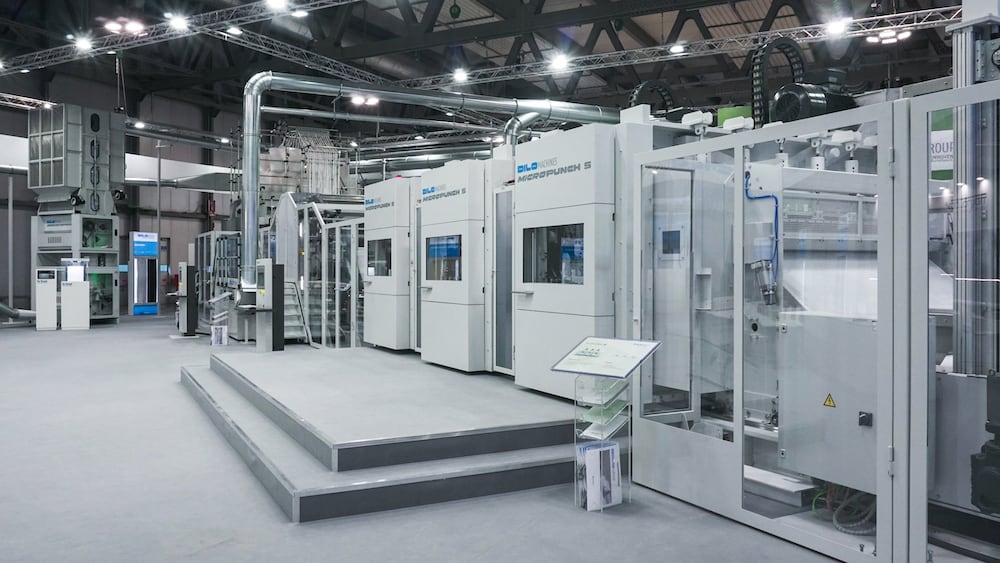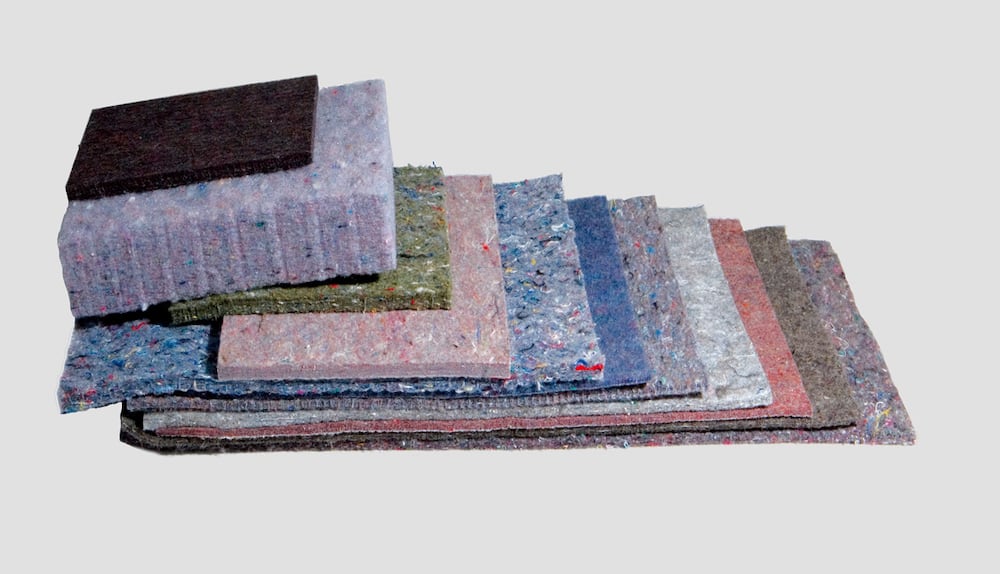A short Interview with J. P. Dilo – Dilo Group General Manager
Dilo Group stands as a global leader in the textile machinery industry, driven by its unwavering commitment to cutting-edge technical expertise, continuous research, and the development of innovative technologies. At the recent Itma Milan exhibition, Dilo once again showcased its capabilities to a diverse global audience, captivating industry professionals with its innovations. During an engaging conversation with Kohan Textile Journal, Mr. J. P. Dilo, the company’s General Manager, shared insightful perspectives:
Let us know about Dilo’s latest technologies and machinery
Dilo has launched on the occasion of ITMA 2023 our latest development “MicroPunch”, an intensive needling technology for the sector of lightweights from fine fibers used in many areas including wipes and medical applications which currently are manufactured using the water entangling technology.
This technology is very successful for wipes of ca. 40 g/m2 for viscose and polyester fiber blends. The consumption of energy, electricity, and gas for water entangling is extremely high, the water consumption considerable, and fiber material is hard to recycle.
Aspects that have led to our development of the intensive needling technology “MicroPunch” where the pure mechanical process of consolidation and staple fiber web formation may save up to 75% of energy (electricity and gas) as well as avoid water consumption and make it easy to recycle edge trim.
Additionally, Dilo has developed a web-forming concept to provide the possibility to place additional fiber mass across the width and length of a needled carrier which results in a defined and controlled placement of fiber in a 3D “mountain/valley” structure. This is very helpful for molded needled felts used as car interior linings as for example for the floor, rear parcel shelf, trunk liner, and door panels.

The molding process of a substrate of even fiber mass distribution and thickness is negatively affected by the molding process which causes strain and stress concentrations.
Those areas can be pre-determined and loaded with additional fibers in order to pre-compensate strain and stress locations. As a result, the total weight of those car parts can be reduced considerably which saves fuel or electric energy in the car.

This 3D-lofter concept as a special additive manufacturing concept can be reversed in that not mountains of fibers are added on an even substrate, but rather uneven areas for example in the flock mat which feed cards or aerodynamic web forming machines can be made much more regular by providing fiber mass to areas of lower weight.
This reversed application of the 3D-lofter concept we call “Isofeed” can contribute to reductions of the CV-value of weight distribution by approximately up to 4% depending on other circumstances.
“Recycling Opportunity”
What are your thoughts on textile recycling opportunities, and could you share more about Dilo Textile’s recycling equipment and solutions?
Additionally, Dilo has started partnerships with Dell’Orco & Villani, a specialist for tearing equipment, in Italy as well as TechnoPlants, a specialist for aerodynamic web forming, in order to provide the complete range of machinery and plants for recycling garment waste through a mechanical process consisting of controlled tearing, baling, web forming, needling and finishing including end-of-line equipment. Therefore, Dilo is now completely prepared to provide complete solutions for the recycling of textile waste.

“Sustainability”
What is Dilo Group’s sustainability policy and efforts in textile manufacturing worldwide?
As outlined above “MicroPunch” intensive needling for energy and water savings, “3D-Lofter” and “Isofeed” to offer savings in fiber material consumption as well as our recycling lines include naturally a very important contribution to sustainability and savings of the resources energy, water and fiber material.
“ITMA Hannover”
The next ITMA is planned to be organized in Hannover-Germany. How do you evaluate it?
After ITMA in Munich 2007, the venues in Barcelona and Milan offered attractive locations to organize ITMAs in Spain and Italy during the last 16 years. Those exhibitions were successful for exhibitors and visitors.
Hannover in Germany has always been a location to provides a large space and professional organization to host many different exhibitions. The last ITMA was carried out in Hannover in 1991 and has proven to be a successful event at that time. I have no doubt that this can be repeated in 2027.





















